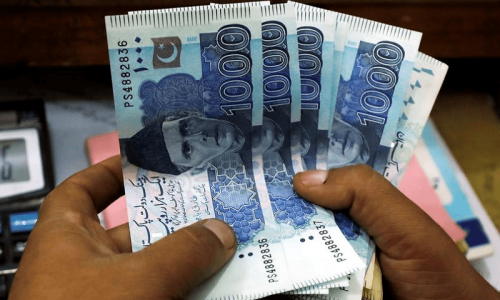Ishaq Dar is planning to impose new taxes on the agriculture

IN a statement before the National Assembly on Friday, Finance Minister Ishaq Dar rebuffed reports that the government was planning to impose new taxes on the agriculture and construction — including real estate — sectors.
According to him, the taxes agreed with the IMF for its $3bn loan, which were widely reported in the media, had already been implemented in the budget for this fiscal year. “I want to categorically state that no new taxes will be imposed on the agriculture and construction sectors … we have already gone through the pain, and have met all of the IMF’s previous actions,” he said.
Increasing the tax rate for builders and developers and non-filers on the purchase and sale of immovable property and second homes is forecast to generate Rs80bn in additional revenues.
The changes in the rates were part of the government’s effort to secure the IMF bailout by raising additional tax and non-tax revenues during the current financial year in order to meet the programme’s goal of producing 0.4 percent primary surplus and increasing tax collection to 10.3 percent.
A number of additional revenue measures were announced on the day parliament approved the budget to satisfy the Fund after the latter criticized the government for missing the opportunity to broaden the tax base in Mr Dar’s original budget.
The minister avoided the broader tax policy goal of effectively taxing undertaxed sectors such as retail, agriculture, and real estate incomes, despite revising the tax target upward.
This was not a surprise, however. Because of their own vested interests, the PML-N and the powerful civil and military bureaucracy oppose taxing retail, real estate, and agriculture, the three largest segments of the economy.
The former FBR head Shabbar Zaidi described how he was prohibited from documenting the massive ‘file’ business in real estate by the previous army chief.
Last year, PML-N chief organiser Maryam Nawaz suggested through Twitter that then finance minister Miftah Ismail should revoke the nominal tax he had dared to impose on the electricity bills of the party’s core supporters, namely retailers, which set the government’s tax policy.
Any increase in the tax target will be borne by the documented corporate sector and salaried classes due to the narrow tax base and low tax-to-GDP ratio.
There is evidence of this skewed policy in the last two budgets. Although the new IMF loan deal commits the government to expand the personal income tax base by 300,000 people, few believe they have the political will to do so.
